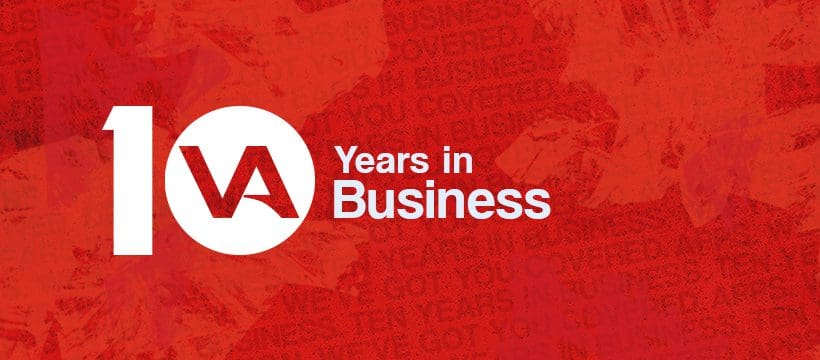Table of Contents
1.
Know Your Service Offering
Know What You Do Well, and Acknowledge What You Don’t
Knowing what you do isn’t always enough. Humility plays a massive part in your success. Much like the times you need to acknowledge your accomplishments, understanding what you don’t do well or at all, can help keep you laser-focused on your goal setting and ensure you don’t spread yourself thin.
You’ll read multiple times in the upcoming points how it’s best suited that you do not do everything in your business, and the reasons are multi-faceted. Yes, you may know your business or the service offering the best, but do you know how to market it correctly? Do you know how to sell? You may have no development or designing skillset, so it’s proving problematic to bring your idea to reality. These are some of the internal discussions you may have without taking into account where you are as a person. Are you an extrovert that loves being in the forefront to talk about your business at every opportunity and despises being in front of a workstation? Are you an introvert that wants the results of a great network but can’t stand the thought of yourself being the one to do it? There’s no right or wrong answer to any of these questions, and that’s OK!
Knowing what you don’t do well isn’t a negative. In fact, it’s the opposite. You are already on your way to being successful if you know what your own shortcomings are. Putting bums in seats within your business is a lot easier than trying to manage each seat by yourself in a stack, which in turn, could collapse on top of you.
Adding an extra service, or even pivoting your business, could be the straw that breaks your back. There’s no need to rush these decisions.
Not All Shiny Things Are Gold or Silver
We’ve been there, we’ve done it, we’ve learned from it. Trends, much like the passage of time, are ever flowing and changing. Some trends or technology may have a direct impact on your business; it comes with the territory. Your competitors may have done something drastic, and now you feel like you’re behind the curve. You may even hear that this new ‘in’ thing is the future of your industry.
Only time will tell, and based on time being the judge, we wholeheartedly advise you to take due diligence when making decisions that could create not only new hurdles but apply more implications too, Knowing What You Do Well and Acknowledging What You Don’t. Funny that, eh?
Adding an extra service, or even pivoting your business, could be the straw that breaks your back. There’s no need to rush these decisions. In our opinion, it’s much better to let trends simmer if given the opportunity, and when they’ve proven their worth, include them in your services or marketing campaigns. Are you doing a full pivot? Well, that’s just dandy, but ensure you’ve done all the background checks you need for this move to be fruitful. There’s truth to the ‘Tortoise and the Hare’, and knowing what you do best before what the industry thinks is best is the gem we’d like you to take away from here.
Unless, of course, you work in the Stock Exchange, we wouldn’t want to be responsible for telling you to slow down and take a breath there.
Be Aware of Drastic Changes in Your Market/Industry
Gravitating towards new trends and being mindful of drastic changes in your industry are two different things. Awareness is key.
If Google decides they are going to release a new way of ranking or change the setup of their ad spaces, we (VOiD) have to be in the know, even if at that moment we can’t action anything. It could affect us, or the change could affect our clients. Staying clued up and being able to pass that knowledge on effectively minimises risk, reinforces our authority and makes sure we can plan to adapt to the upcoming situations at hand.
This can be applied to any market, sector, or industry, be alert and assess the situations that are presented so that you and your clients aren’t the last ones to know. No one likes spam or constant nudges via email, but newsletters are a great way to stay in the know from reputable services or authorities. If you use a messaging service such as Slack or Discord (this is a non-sponsored post btw), you can use RSS feeds in channel discussions to see the latest news/blogs from the entities you trust. Being aware hasn’t got to be a hassle; find the best way for you to get that information and build it into your workspaces.
2.
Surround Yourself with the Right People
Sounds easy enough, right? Well, let us be the first to tell you if no one else has, not everyone you cross paths with will rub shoulders with you for the greater good. That goes from peers to employees, to clients, to investors. Do we say this so that you scowl and growl at everyone that takes an interest in your business, absolutely not (although the results of that may be hilarious).
Depending on how you started out or where your business is currently, advisors can take shape in the form of business mentors, networkers or even service providers.
Finding a balance between being open-minded and scepticism is tough but necessary. Sometimes you’ll be taken for a ride, thus is the nature of business. However, learning from the experiences is what matters the most. If you truly believe in your service offering, then working with, as well as for the right people is key. All CVs don’t tell the whole truth, and not all money is good money, but having processes in place to minimise risk and allow you to assess your business from an over the top view so you can get the right people in the right seats to help your business grow and work with the right clients and customers in your target demographic is the reward of perseverance as well as trial and error.
Having the Right Advisors and Support Network Can Help Your Business
It’s as easy as a genuine email query, a casual phone call, or an introduction at a networking event. Contrary to popular belief and how we’re programmed to perceive one another on a daily basis, it turns out other humans aren’t that bad; who’d have thought? So with that being said, there are ways and means to get the advice you need from reputable sources, but please just remember to use manners and say thank you!
Depending on how you started out or where your business is currently, advisors can take shape in the form of business mentors, networkers or even service providers. Remember when we said that it’s best not to do everything in your business, well the people you use to fill the gaps should also be seen as a source to harvest knowledge from when in doubt or just curious.
Another way to think about who is actually in your support network other than those above is, if you have qualified a client and they meet your needs to allow you to do your job, then they’re probably on the correct wavelength for you to approach and converse with. Use those you’ve helped to ask questions where you see it applicable, you never know the opportunities that may arise from it.
Like-Minded Businesses Aren’t Always Competition
You’ve seen the alpha wolf memes (which btw alpha wolf is an outdated term, ‘the more you know’), you’ve heard about the earliest bird getting the worm, and depending on how long you’ve been in business, you’ve been the direct target of focus when business x rep starts to slate business y when they start up a conversation with you in the canteen, whilst all you tried to do was get a cuppa and catch up with your emails.
Yes, competitors are a thing, but the idea that a competitor can take up all the business that exists in your market and location, let alone the World and leave you with less than crumbs is a fallacy. In fact, the passing on of work and networking between quote-on-quote rival businesses is more common than you think. Competition is great. It gives you an insight into what others are doing and allows you to evaluate that against your own service delivery. Do you have a client that needs something you can’t technically provide, but you know another company can? Well, what are you waiting for, make that connection and look after your client whilst opening up a new avenue for getting work, or go a step further and set up commission-based recommendations.
When a business is open to working relationships, it makes the whole process of finding work and like-minded businesses/individuals easier. Remember, you haven’t got to give away your secret ingredients, but advising what seasonings to use can be very rewarding.
You know your service offering. You know how to deliver it. If that’s where you strive, then stick to it.
Only time will tell, and based on time being the judge, we wholeheartedly advise you to take due diligence when making decisions that could create not only new hurdles but apply more implications too, Knowing What You Do Well and Acknowledging What You Don’t. Funny that, eh?
Adding an extra service, or even pivoting your business, could be the straw that breaks your back. There’s no need to rush these decisions. In our opinion, it’s much better to let trends simmer if given the opportunity, and when they’ve proven their worth, include them in your services or marketing campaigns. Are you doing a full pivot? Well, that’s just dandy, but ensure you’ve done all the background checks you need for this move to be fruitful. There’s truth to the ‘Tortoise and the Hare’, and knowing what you do best before what the industry thinks is best is the gem we’d like you to take away from here.
Unless, of course, you work in the Stock Exchange, we wouldn’t want to be responsible for telling you to slow down and take a breath there.
3.
Outsource the things YOU Are Not Trained in

Seriously, you cannot do everything. Unless you enjoy stress, well, this is the perfect prescription to accrue it. In the early days of a business, there are things that you may have to do that normally you wouldn’t, or as soon as the opportunity arises, you should delegate.
We say this from a place of experience that has been experienced multiple times. You know your service offering. You know how to deliver it. If that’s where you strive, then stick to it. Easier said than done, depending on the circumstances, but an essential part of a business’ success rides on you, the business owner, the frontman, the star of the show, knowing when to delegate and elevate. Would it be cheaper for you to do it, the answer is and always will be yes, but that doesn’t mean you should. There are so many cogs in a business’ inner workings that if one goes missing or begins to rotate the wrong way… well, you get the picture. Let’s take a look at just a few areas where external expertise may be needed, depending on your business model and what you are trying to achieve.
Accountancy services are responsible for:
- Payroll
- Tax compliance
- Business setup compliance
- Tax planning and advice
- Bookkeeping
- HR (Human Resources)
Employment is a mine field and you need to make sure you are in compliance with legislation. A HR service can help with employment contracts and keeping you in the know of what needs to be done when dealing with people.
- Brand Awareness & Social Media
- Social media is its own beast and can be utilised by anyone for their business to gain traction, but that comes with the responsibility of competing with algorithms.
- Web Advertising and Targeted Search Engine Opportunities
- Google, Bing, Microsoft and LinkedIn Adverts, just to name a few, all need constant attention to manage the amount of spending depending on multiple factors.
Each service differs in its approach and application of assets.
This isn’t an extensive list by any means, and depending on the size and aim of your business, you may need all or just one of the potential services mentioned, but the point to take from this all is that if you aren’t trained in it, and don’t plan to have the time to be or one of the best reasons of all, you purely don’t want to handle that part of the business, ensure you’ve got someone that does as to not falter in the future.
4.
Plan Ahead
As the saying goes, you can lead a horse to water, but making it do a 5-year plan is neigh impossible. Sorry, not sorry.
You may step off the beaten path, but as long as you find yourself going in the right direction, you’ll always find the right route to your goals.
Knowing where you want to be 1 year, 3 years, or even 5 years from now is a great way to set realistic goals that you can work toward. What does your business look like? Are you planning to recruit 2, 3 or more employees? Are you renting office space or planning to buy a building? What’s the turnover of your business now, and where do you aim to get it? These are all things that, regardless of where you are in your career, you can map out and work towards as long as there’s a sense of realism behind it. However, that shouldn’t stop you from aiming high, as the checkpoints that are created from these visions will give you the waypoints needed to meet your aims overall.
Set the goals, with times, so you work within realistic constraints, then stepping backwards from the goals you’ve set in the future, understand the process and what hurdles you are faced with to get where you want to go. Give yourself clarity and a pathway to success. You may step off the beaten path, but as long as you find yourself going in the right direction, you’ll always find the right route to your goals.
5.
Make Time to Work on the Business Instead of In the Business
Planning Ahead, as the previous point mentions, means you aren’t working on the here and now of the business. It may seem counterproductive, but this needs to be a recurring factor. In order to plan ahead, you need to be working on your overall vision, your overall vision can be constructed in many ways, but the objective is still the same;
Keep a finger on the pulse of your business.
To do this, let’s discuss some of the ways we work ‘on’ the business to make sure we don’t slip into a critical condition, and if there’s a chance of that happening, we most certainly knew it was on the way.
Weekly/Daily Meeting(s)
Once a week may seem like a commitment, but in actuality, it’s probably the easiest meeting and the most rewarding to turn up for. Pick a day (our preference is the start of the week), pick a time (we also prefer mornings, so we set the pace for the rest of the day), and stick to that routine every week. Within this meeting, use anywhere between 30 and 90 minutes to dissect actions that will be taken during the week (a to-do list you can check off) to achieve necessary tasks and push long-standing goals forward. Is there an issue that can become an obstacle during the week or even longer? Make time to discuss these with your peers, or even if you are a one-man band, write them down and IDS them (Identity, Discuss, Solve). These typically work themselves out or will become parts of your To Do’s to attain a resolution. How you do these meetings is up to you. For us, we’ve been trained to perform these, and due to that, they are one of the most important components to make sure, as a business, our week goes right! Remember when we said surround yourself with the right people, well that goes for any sort of training too.
Another check-in we like to perform is an end-of-day catch-up. This happens every day for the most part and is a casual review of what we were able to achieve. It’s a great way to ensure everyone can remain on track and hit the desired workload targets for the week, and if there are any blockages or tasks for the next day that anyone needs help with, we can share them and turn around quick resolutions.
Communication is key and critical if you want your business to remain healthy. No one likes being pulled off work, but if the time around work is used constructively, you can really boost your productivity within those periods. A faster turnaround means the availability of more time spent on your business.
Quarterly Planning Sessions
Splitting a working year into 4 quarters gives you a great opportunity to review the trajectory of your business. Working on the business shouldn’t mean massive culture shocks and new process implementations every week, but it also doesn’t mean you should wait a year apart for annual reviews to do the same either. Quarterly sessions give you a chance to work in clarity breaks to your routine and look at your business from a birds-eye view. Are you wondering how you can stop time to work on time-sensitive marketing campaigns for each season or events during the year? Take a step back, book time in your calendar, and make sure you plan for the quarter with this meeting.
The overarching goals of the business can be broken down and implemented via phases that can be reviewed at these points. This is how we hit our aforementioned 1-year goals and is why we can look up to at least 5 years in the future of where we want our business to be potentially positioned.
In a sense, the Quarterly Planning Sessions are an elongated version of your weekly meetings, so if you are already practising these, your Quarterlies can be a powerful tool for goal setting and solving issues that may take longer than a week.
Annual Review/Year End Meetings
You won’t be able to understand where you’re going without looking back and understanding where you’ve been. An annual review is a great chance to look back on the past year of performance and understand whether targets have been met and, if not, why? This is the foundation for setting your future goals, if you aren’t hitting targets for the previous year, then you need this chance to review and understand why? Were they too lofty, did your circumstances change, did you ignore the tasks at hand? Be truthful and honest, and the information that comes out of these discussions can help to propel your business as you align realistic goals with your year ahead.
Vice versa, if you smashed your targets for the year and ended up ahead of schedule, then what are you going to chase next, and what is your path to get there?
Defining ‘On’
The recurring theme is that with any of these meetings, you take the time to look at what you are doing and what you are going to do and understand why it should be done, whilst taking into account the impact this has on projects you undertake, but not the workings of a project it’s self. Working ‘on’ the business takes many forms; it’s an extensive list that varies from business to business, person to person, but regulated intervals of clarity breaks and planned meetings are a great way to force the ‘On’ aspect rather than ‘in’.
For us as individuals within this company, working on the business could mean constructing a prospect list to market to, strengthening client relationships and finding strategic partners, developing new skills with software that can help productivity, taking time out to plan marketing activities, or internal processes being created, refined and adhered to in order to work simultaneously as a team.
To Conclude for Now…
In conclusion, we are still learning and applying. We’ve still got a lot more to share, so please find that out here in part 2. Also, for more information on VOiD Applications, feel free to peruse the website; otherwise, Contact Us today to find out how we can help you and your digital marketing needs.























